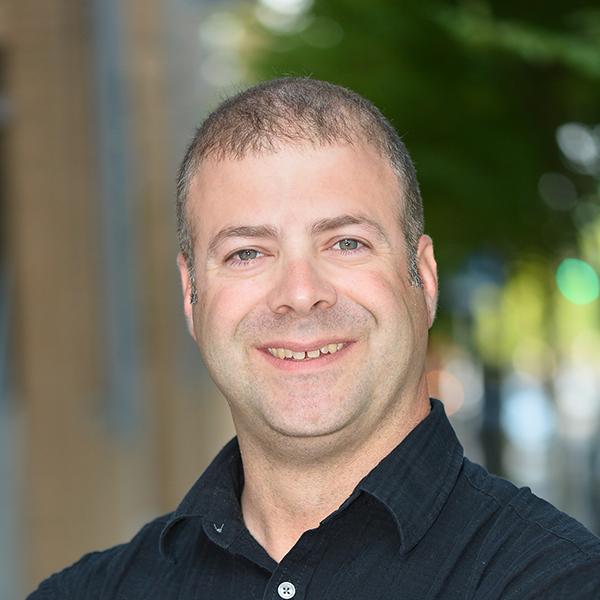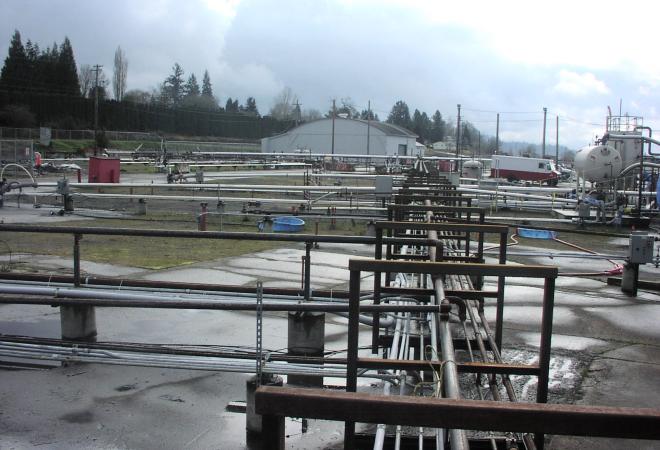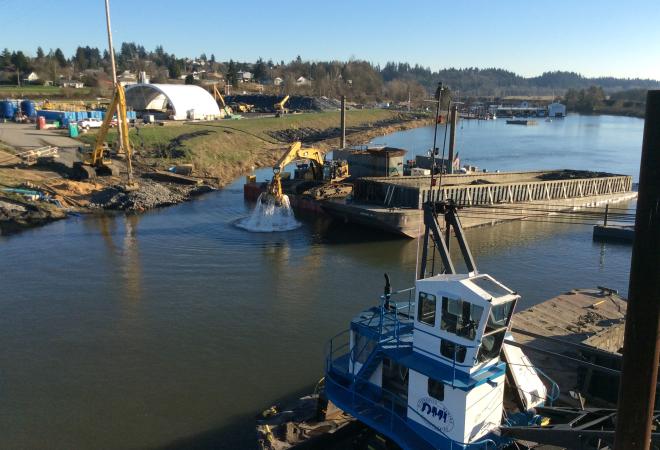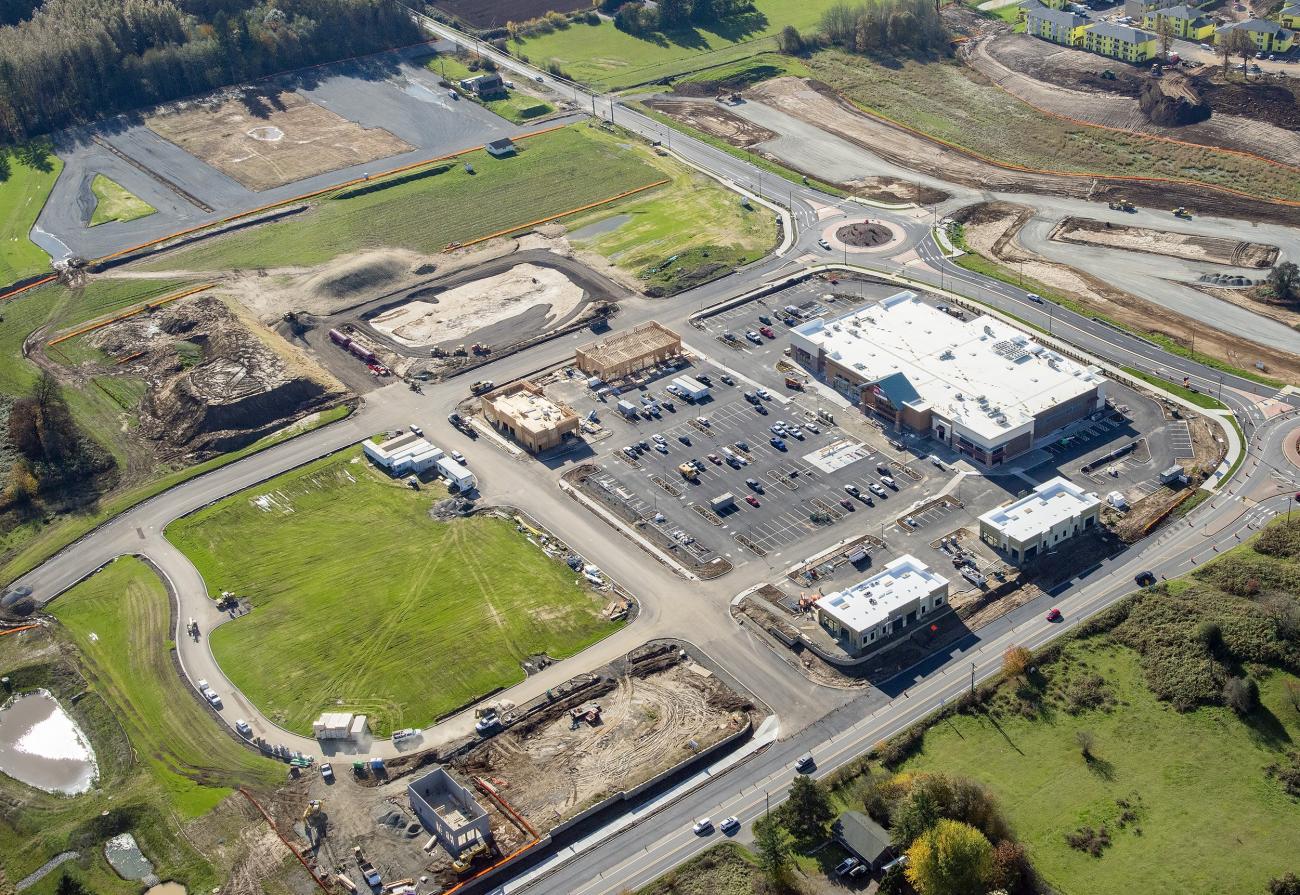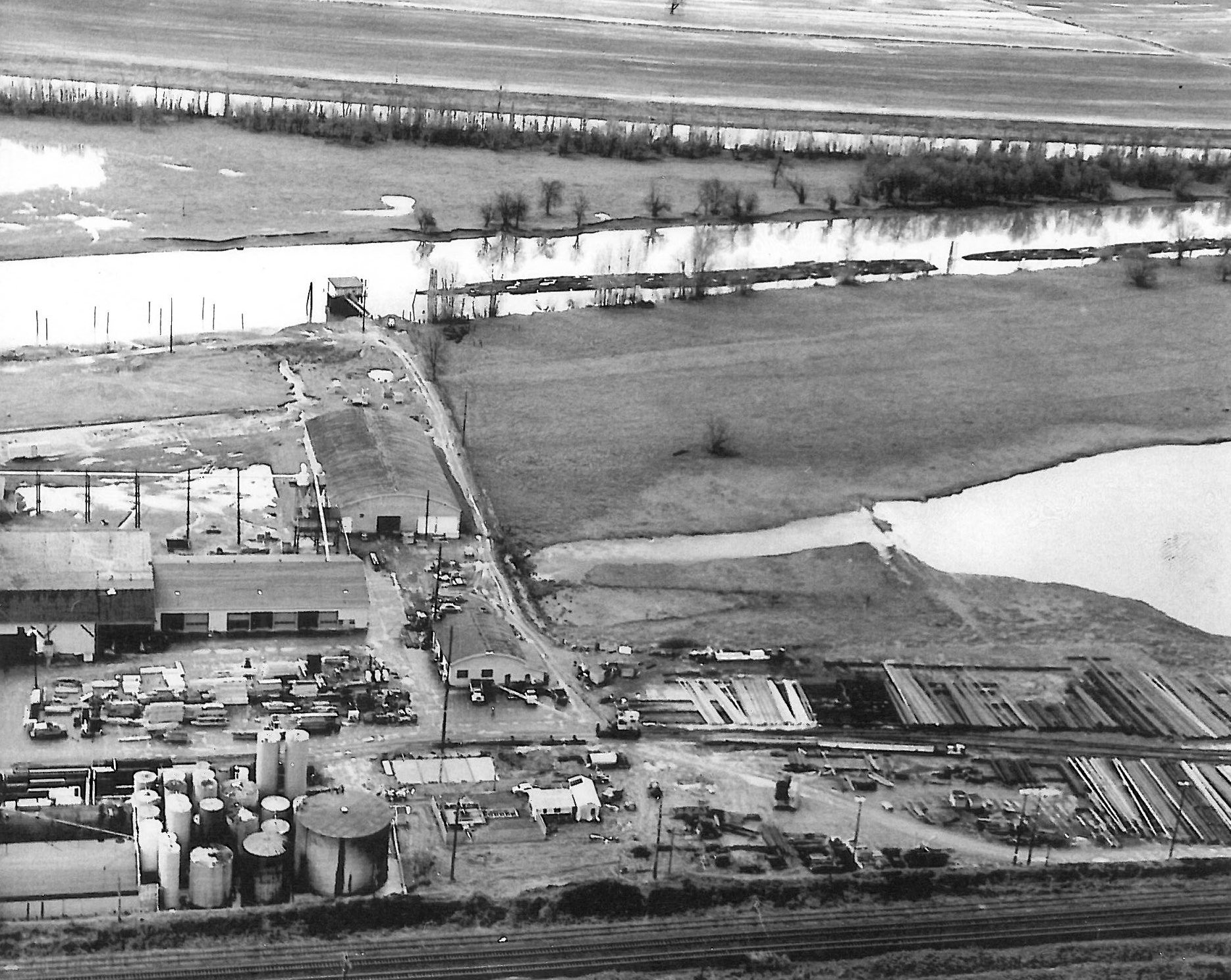
Ridgefield, WA
Lake River Industrial Site Brownfield Cleanup
Client Name
Related Service
Related Sector
The 40-acre property where Pacific Wood Treating (PWT) once operated forms the City of Ridgefield’s waterfront. After 30 years of operations, PWT abruptly declared bankruptcy and abandoned the property leaving extensive soil, groundwater, and sediment impacts including chlorinated solvents, petroleum hydrocarbons, pentachlorophenol (PCP), and dioxins. The impacts related to the operations extended beyond the property to Lake River, the Ridgefield National Wildlife Refuge (RNWR), and the neighboring residential properties to the east.
The Port of Ridgefield (Port) took a proactive approach to restore the waterfront back to productive use. Since 1996, MFA has assisted the Port with developing a strategic approach for cleanup of the PWT site including sediment remediation on the RNWR and Lake River, upland soil and groundwater remediation to support restoration of the Ridgefield waterfront to productive use, and remediation of affected residential properties. Initially, MFA assisted the Port in negotiations to allow the Washington State Department of Ecology (Ecology) to manage the cleanup and keep the site off the federal Superfund list. With MFA’s assistance, the Port was able to obtain state and federal cleanup funds and contributions from potentially liable parties to minimize the local costs of the project. The characterization and remediation of the site were completed under Ecology’s formal cleanup process through Agreed Orders. The first action the Port completed on the site, with MFA’s assistance, was removal of wood treating chemicals and other waste left on site by PWT.
MFA completed upland and in-water remedial investigations (RI), human health and ecological risk assessments, and feasibility studies (FS) for soil, groundwater, and sediment for a wide range of chemicals, including PCP and dioxins, for the site. MFA led the remedial design and cleanup efforts for Lake River, Carty Lake in the RNWR, and the upland portions of the site. This included permitting and coordination with local municipalities, the Washington State Department of Natural Resources, the U.S. Army Corps of Engineers, and local health departments. As the RI/FS was being conducted, MFA supported the Port in completing an emergency action to remediate mobile product (i.e., nonaqueous-phase liquid [NAPL]).
Components of the design and remedy included the following:
- modeling to evaluate dredge residual deposition and mixing to predict post-dredge surface sediment concentrations
- planting that incorporated native species to reduce long-term water needs to increase sustainability
- and acquiring eligibility to manage and dispose of remedial waste of through corrective action management units under the RCRA.
MFA continues to support ongoing monitoring and maintenance of upland and in-water caps and vegetation following completion of cleanup activities. The cleanup project positioned the site for redevelopment with open space, public trails, and shovel ready development pads all incorporated as part of the final remedy.
Widespread dioxin contamination (resulting from vehicle transport and dust) was also documented in adjoining neighborhoods to the east of the former PWT operations. MFA has worked closely with the Port and Ecology to coordinate with homeowners to conduct yard sampling and to develop cleanup and restoration plans for each property and right-of -ways.
MFA continues to perform compliance and performance monitoring at the site to evaluate the effectiveness of the remedial actions completed.For in-water areas, all compliance monitoring has been completed, demonstrating remedy success.
Learn More
Contact Us!
Thank you for your interest in MFA! Whether you are looking to inquire about a project or are interested in learning more about our services, please reach out to the MFA Team!
